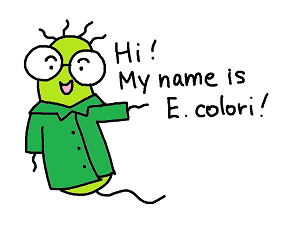Team:CSIA SouthKorea
From 2013hs.igem.org
| Line 68: | Line 68: | ||
<!-image insert end-> | <!-image insert end-> | ||
<img src="/Image:IGEM_Title.png" name="nav_index_BH0" | <img src="/Image:IGEM_Title.png" name="nav_index_BH0" | ||
| - | border="0" class="namo-banner | + | border="0" class="namo-banner" ></div> |
<!--NAMO_NAVBAR_END--> </td> | <!--NAMO_NAVBAR_END--> </td> | ||
</tr> | </tr> | ||
Revision as of 08:50, 17 March 2013
|
|
| Hello, we are CSIA_SouthKorea! | |
|
In 2010 Collegiate iGEM, Team Cambridge conducted “E. glowi” project, in which the team used bioluminescence-related genes of firefly and Vibrio fischeri to engineer E. coli strains that emit a variety of wavelengths of light. Furthermore, Team Cambridge applied various techniques, such as mutagenesis and codon optimization, in order to improve the naturally-existing parts. The goal of our team is to further improve the system of the parts of Team Cambridge into parts that can produce even greater amount of fluorescent protein. The main mechanism that we will utilize in order to achieve our goal is increasing the ATP concentration inside the cell. It is known from previous researches that higher concentration of ATP inside the cell leads to a greater rate of recombinant protein expression; it is also known that overexpression of PCK, which is an enzyme that synthesizes ATP under glycolytic condition, results in higher amount of ATP synthesis, which causes higher concentration of ATP inside the cell. Therefore, in order to enhance fluorescent protein expression in E. coli by increasing the ATP concentration inside E. coli, our team will improve the part engineered by Team Cambridge by incorporating PCK-expressing gene inside the part. Team Cambridge’s project comprises two sub-projects: Project Firefly and Project Vibrio; our team will specifically focus on the part with Vibrio fischeri genes. Furthermore, considering that proteorhodopsin, under conditions in which normal cellular respiration is impossible, works to convert light energy into chemical energy of ATP, our team is considering adding gene that expresses proteorhodopsin so that we can construct E. coli that can consistently produce fluorescent protein, even when put under harsh conditions. One plausible application of this project is constructing a BioPrinter with the bioluminescent E. coli strains. If time permits, we will try to devise a way with which we can use the E. coli strains as BioPrinter material.
[1] Kwon, Y. D., Lee, S. Y., and Kim, P., A Physiology Study of Escherichia coli Overexpressing Phosphoenolpyruvate Carboxykinase. Biosci. Biotechnol. Biochem., 72(4), 1138-1141 (2008). [2] Kim, H. J., Kwon, Y. D., and Lee, S. Y., An Engineered Escherichia coli Having a High Intracellular Level of ATP and Enhanced Recombinant Protein Production. Appl. Microbiol. Biotechnol., 94, 1079-1086 (2012). [3] Walter, J. M., Greenfield, D., Bustamente, C., and Liphardt, J., Light-powering Escherichia coli with Proteorhodopsin. PNAS, 104(7), 2408-2412 (2007). | File:CSIA SouthKorea team.png Your team picture |
| Team CSIA_SouthKorea |
| Official Team Profile |
|---|
 "
"


